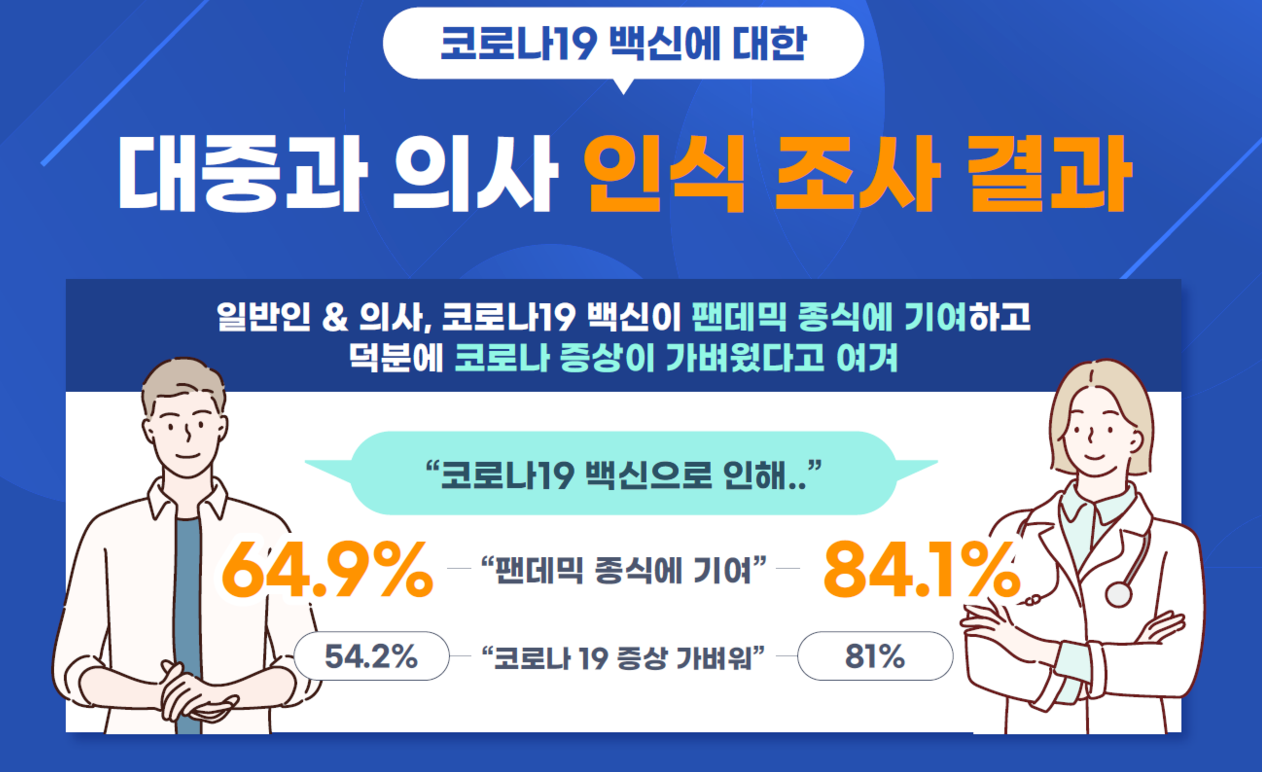
A survey shows that an information gap on Covid-19 vaccines is emerging between infectious disease specialists and general practitioners who directly administer vaccines to patients.
The Korean Association of Medical Journalists (KAM) released the "Public and Expert Perception Survey on Covid-19 Vaccines" results on Thursday. The survey was conducted from July 7 to 13 on 1,063 men and women aged 19 to 70 from 17 cities and provinces across the country, including 104 clinicians with experience in vaccination and 63 infectious disease specialists.
The results confirmed a disparity in information about the Covid-19 vaccines among physicians who directly administer the vaccine on the front line and infectious disease specialists.
When asked how well informed they were about the effectiveness of Covid-19 vaccines, 50.8 percent of infectious disease specialists said they were "well informed," compared to 23.1 percent of primary care physicians. Asked about their understanding of the Covid-19 vaccine, 76.2 percent of infectious disease specialists said they had a high level of understanding, compared to only 43.3 percent of general practitioners.
The information gap also extended to concerns about Covid-19 vaccines’ adverse events. Nearly 54 percent of primary care physicians were concerned about adverse reactions to the Covid-19 vaccine, but the comparable share of infectious disease specialists remained at only 28.6 percent.
According to the medical journalists ' association, these findings indicate the need to communicate Covid-19 information more positively to physicians who administer vaccines to patients at the point of care.
There was also a significant gap in perceptions of the effectiveness of Covid-19 vaccination between the general public and infectious disease specialists.
Both the general public (64.9 percent) and infectious disease specialists (84.1 percent) believed that the development and implementation of vaccines contributed to ending the pandemic. In addition, 54.2 percent of the public and 81.0 percent of specialists believed that Covid-19 symptoms became milder because of vaccines.
However, views differed on the effectiveness of vaccination in preventing Covid-19.
Nearly one-third of the general public, or 32.3 percent, believed the vaccine was ineffective because they contracted Covid-19 despite being vaccinated. Nevertheless, only 7.9 percent of infectious disease specialists thought so. Furthermore, 25.5 percent of the public agreed with the survey statement, "Given the risk of adverse events, it is safer not to get a Covid-19 vaccine than to get one," compared to only 7.9 percent of infectious disease specialists who agreed.
People at higher risk of Covid-19 were also less likely to trust vaccine information and reported confusion by the flood of information available.
Physicians had a more negative perception of media coverage of vaccine side effects during the Covid-19 pandemic than the public.
When asked if the media coverage of Covid-19 vaccine side effects was adequate, 36.5 percent of the public and only 14.4 percent of physicians said “yes.” Additionally, 35.7 percent of the public trusted media coverage of vaccine side effects, compared to only 16.2 percent of physicians.
Besides, both physicians (60.5 percent) and the public (59.9 percent) read comments on Covid-19-related media reports, with 69.5 percent of the public saying they are "influenced by such comments.”

